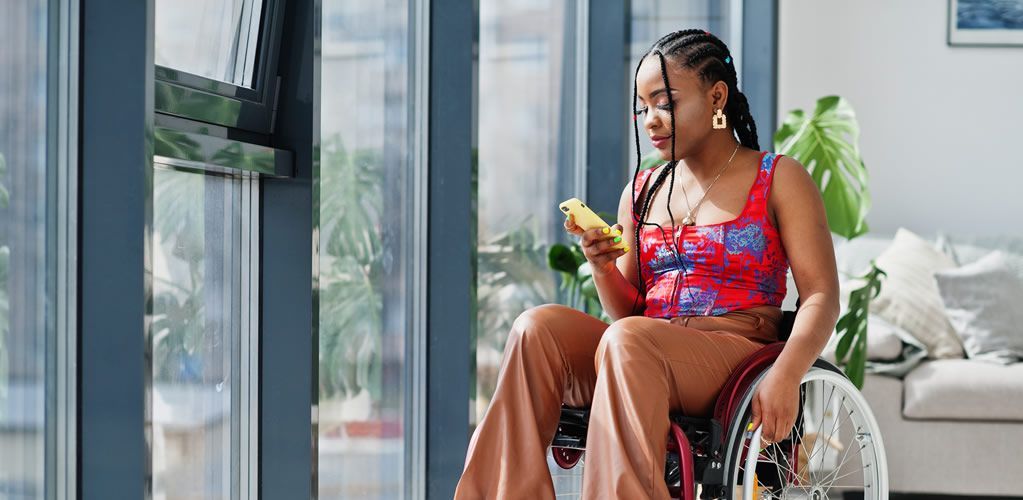Twitter has been important for disability activism – That’s being lost under Elon Musk
With Elon Musk’s plans for Twitter, disabled users will struggle more to access the platform and be cut off from opportunities to tell their stories and collaborate internationally.

With Elon Musk’s plans for Twitter, disabled users will struggle more to access the platform and be cut off from opportunities to tell their stories and collaborate internationally.
First published: Dec 2022.
B efore purchasing Twitter, Elon Musk said that a public platform for free speech is a “societal imperative for a functioning democracy”. As part of this, he claimed that Twitter being “maximally trusted and broadly inclusive is extremely important to the future of civilisation”.
It has become apparent, however, that disabled people and their access requirements do not feature in Musk’s vision for an inclusive platform. In Musk’s radical restructuring of the company (primarily through mass layoffs), Twitter’s accessibility team has been obliterated. There is no evidence that accessibility roles have moved into other areas of the company.
This means there is no longer an effective way for Twitter users to report inaccessible features on the website or app. It also means there is no dedicated team to add or improve accessibility features. Without them, it is difficult to imagine how Twitter can continue to align with frameworks like the UN Convention on the Rights of Persons with Disabilities.
These changes mean disabled people will struggle to participate in Twitter’s many online communities. Opportunities to highlight important issues, tell stories, exchange knowledge, and bring people together to drive change are lost.
It also poses a threat to the disability activist community, who use Twitter and other social media to promote their rights, challenge political conditions and celebrate their identities.
Disabled activists argue that disability is a result of the way society is organised. How environments are built, people’s attitudes towards accessibility and political decisions all contribute to making the world more inaccessible. But activist work has helped dismantle these systems, for example, through creating the Disability Justice Framework.
Online activism is sometimes disparagingly dismissed as ineffective or “slacktivism”. But platforms like Twitter allow disabled people to connect when it is difficult or impossible to meet in offline spaces.
Activists also use social media to increase visibility about issues ignored by traditional media. For example, disabled people mobilised online during the 2012 Paralympic Games to resist austerity measures introduced by the UK government.
Twitter has become an important tool for illustrating that accessibility and disability justice are global issues. People from around the world have been able to build solidarity, collaborate on projects and discuss how disability intersects with other aspects of their identity, such as gender, ethnicity and sexuality.
Inaccessibility in activism
Some are less convinced by the influence of Twitter. Research in Sweden explored how Twitter users can influence disability policy, and argued that social change online is limited. This is because the most active contributors to Twitter are individuals, who struggle to build and sustain widespread engagement. The researchers found that disabled people’s contributions to Twitter were rarely amplified by other Tweeters, unless they were connected to advocacy organisations and politicians, or known to the media.
I have written about young disabled people’s struggle to promote their ideas within disability activist circles. Often, this happens because spaces to participate are inaccessible, and other activists can restrict or undermine their contributions.
Musk’s plans for Twitter will mean more disabled activists struggle to access the platform and promote their ideas. For example, the paid “blue tick” scheme will exclude many who can’t afford to pay for verification. This includes disabled people, who globally have higher levels of poverty than others.
His fixation on free speech also fails to explain how violence and hate incidents will be prevented on the platform. Disabled people, and other communities who are exposed to violence often, require protection from the platform.
The future of Twitter
Twitter’s trajectory is dangerous for disabled people’s social movements, but hope should not be lost. The platform can still be a place for ideas to flourish, but a few things need to change.
First, Musk should reinstate Twitter’s accessibility team. And he should guarantee funding so they can continue to solve accessibility barriers and build new assistive technology.

Elon Musk has already dealt Twitter accessibility a blow. | CREDIT: FLICKR/HEISENBERG MEDIA
He should meet with disabled people and organisations (like the International Disability Alliance) to understand the requirements of a safe and accessible platform. Another option would be to set up an international disability advisory committee, who are paid for their time and knowledge and can support long-term work to make Twitter more accessible.
Some will argue that disabled activists should abandon Twitter and find alternative spaces. While it is important for activists to use other resources (on and offline), disabled people’s exclusion should never be acceptable. If Musk wants Twitter to be an important space of democracy and debate, it needs to be safe and accessible for all to participate.


|

|

|
— AUTHOR —

|
Sources
- Text: This piece was originally published in The Conversation and re-published in PMP Magazine on 20 December 2022. | The author writes in a personal capacity.
- Cover: Adobe Stock/AS Photo Project.






[Read our Comments Guidelines]